Our History
Turnaround was founded in the wake of the 9/11 attacks to address the impact of trauma on New York City public school students.

2001
In the wake of September 11
Dr. Pamela Cantor helps lead a team commissioned by the New York City Board of Education to assess the impact of the terrorist attacks on city's public schoolchildren. Surprisingly, while 68% of the children they observe have experienced trauma sufficient to impair their functioning in school, it is from their ongoing experience of growing up in poverty, not from what they witnessed that terrifying September day. What's more, Dr. Cantor and her researchers find schools in high-poverty communities in a state of chaos, woefully ill-equipped to meet the intense psychological and academic needs of their students.2001
The search for a solution
With support from the 9/11 fund, the Robin Hood Foundation, the Tiger Foundation and the New York Times Foundation, Dr. Cantor and educator Greg Greicius, working as the Children’s Mental Health Alliance, seek to address the recurring, predictable challenges that plague chronically underperforming public schools. As a child psychiatrist, Dr. Cantor knows how to help each patient who enters her office get well, but designing a program to serve hundreds of students at once is a new challenge.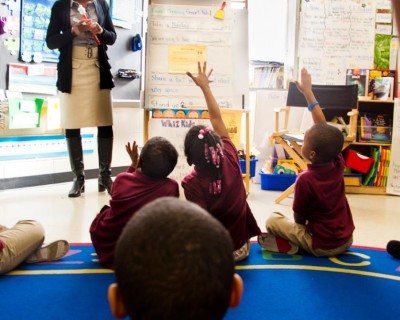
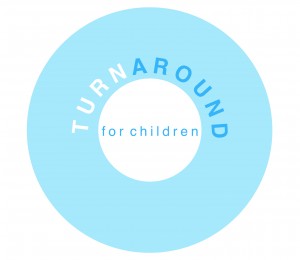
2002
The Children's Mental Health Alliance is renamed Turnaround for Children
2002
First school partner
At P.S. 132 in Washington Heights, one of the lowest performing elementary schools in New York City, a pilot program begins. The approach: pair on-site student support capacity (a novel idea at the time) with community mental health providers. The goal: make sure high-needs students receive the care necessary to get on track emotionally and academically. The school experiences rapid, measurable improvements in school climate.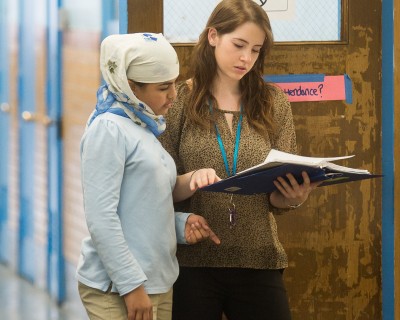
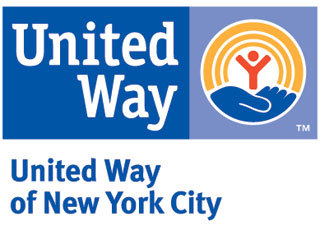
2003
Collaboration with United Way of New York City
United Way asks Turnaround to be managing partner of a public/private collaboration called the Safe Schools Successful Students Initiative, in six high-need Bronx middle schools. The hypothesis: increasing access to mental health services for high-needs students would positively impact school culture and climate, reducing, for example, suspensions and calls to 911.2009
American Institutes for Research Evaluation
American Institutes for Research publishes an evaluation on the effectiveness of Turnaround's model. The report states: "At the school level, results for schools that participated in the Safe Schools Initiative were overwhelmingly positive. Both quantitative and qualitative data showed that schools that had been in states of profound crisis were functioning better across multiple outcomes."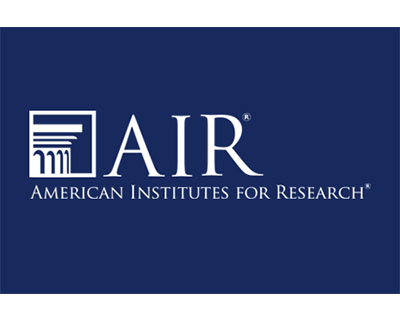
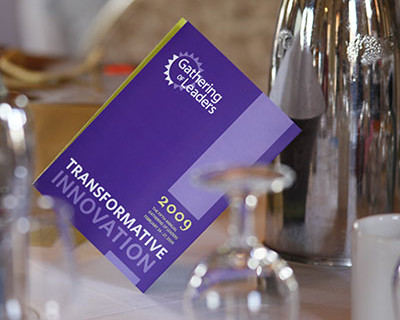
2009
New Profit Gathering of Leaders
Dr. Cantor meets Katherine Bradley, President of CityBridge Foundation which seeks to transform public education in Washington, D.C.; and Jim Shelton, who would become Deputy Secretary of Education for the United States, and later president of the Chan Zuckerberg Education Initiative. Both become key advisors and friends to Turnaround.2010
Inaugural Impact Awards Dinner
Turnaround for Children holds its first gala, raising $1.1 million and honors New York State Board of Regents Chancellor Merryl Tisch, New York City Schools Chancellor Joel I. Klein, and journalist Perri Peltz. The event is chaired by Judi and Joseph Flom and Simone and David Levinson, with honorary chairs Trey Beck, Dr. Pamela Cantor and Kelly Posner Gerstenhaber, Ph.D.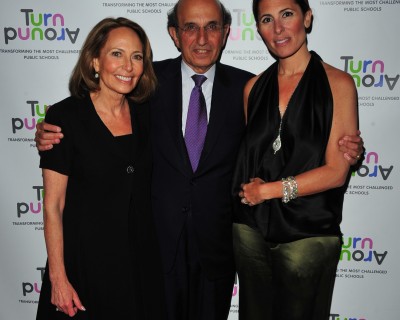
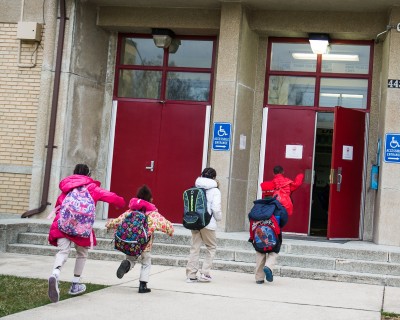
2010
Expansion to Washington, D.C.
Turnaround launches partnerships with three schools in Washington D.C., complementing efforts by the Office of the Deputy Mayor and D.C. Public Schools to address students’ social-emotional needs.2012
Turnaround 2.0
Despite improvements in school culture and climate, teachers at Turnaround partner schools continue to struggle with disruption and lack of engagement in their classrooms. In response, Turnaround revises its program to provide teachers the tools to establish productive and highly engaged classroom environments. It provides weekly professional development sessions for teachers, supplemented by in-class coaching and support. This helps create a professional learning community for teachers and opportunities for collaboration.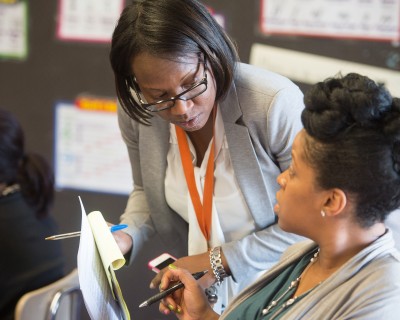
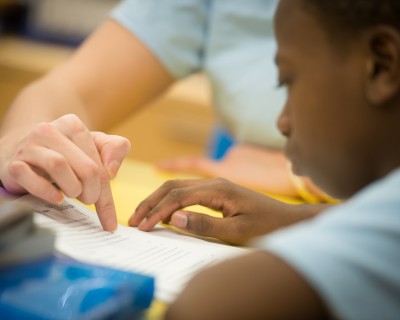
2013
Expansion to Newark, New Jersey
Newark Schools Superintendent Cami Anderson’s emphasis on social and emotional learning offers Turnaround the opportunity to partner with three renew schools and to share knowledge with the district too. Financial support comes primarily from the district and the Foundation for Newark’s Future.2013
Dr. Pamela Cantor named Ashoka Fellow
The Ashoka Institute describes its fellows as “leading social entrepreneurs with innovative solutions to social problems that have the potential to change patterns across society. They demonstrate unrivaled commitment to bold new ideas and prove that compassion, creativity and collaboration are tremendous forces for change."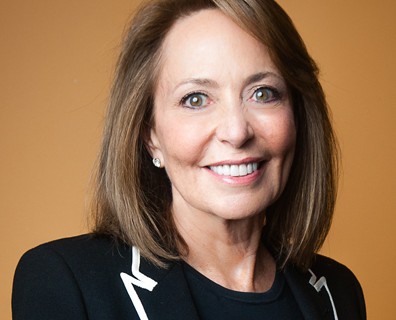
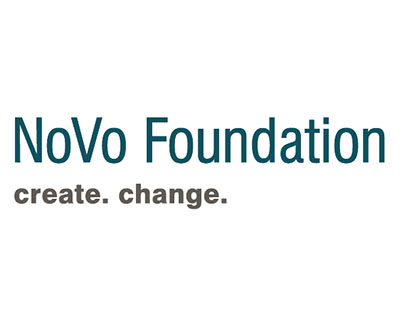
2014
NoVo Foundation Gift
Novo Foundation announces a $10 million gift to Turnaround in support of its efforts to deliberately design learning environments that address the challenges for children growing up in poverty.2014
Dr. Cantor awarded The Purpose Prize for Intergenerational Impact, sponsored by the Eisner Foundation
The Purpose Prize celebrates innovators in the second half of life who are combining their passion and experience to create new ways to solve tough social problems.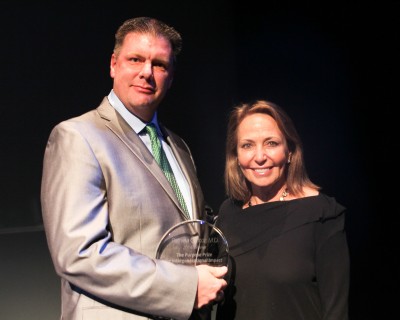

2015
Every Student Succeeds Act
Turnaround engages in reauthorization process of the Elementary and Secondary Education Act, advocating for inclusion of and attention to language on nonacademic skills and learning environments focused on student development.2015
Turnaround wins opportunity to present at SXSWedu
The panel discussion, Transforming Schools Using Brain Science, is moderated by Katherine Bradley, President, CityBridge Foundation, and features Dr. Pamela Cantor,; Dwight Davis, Assistant Principal, Wheatley Education Campus and Sheila Ohlsson Walker, Ph.D., Research Associate, Johns Hopkins Bloomberg School of Public Health. Dubbed a “rockstar panel,” it leads to additional speaking engagements, including NewSchools Summit, Aspen Ideas Festival and the S & R Foundation’s Illuminate Series.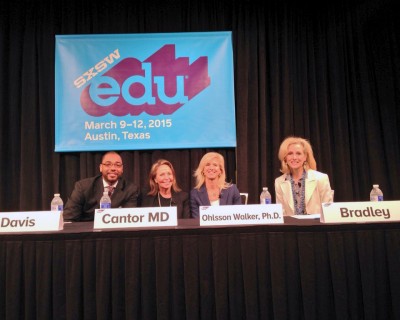
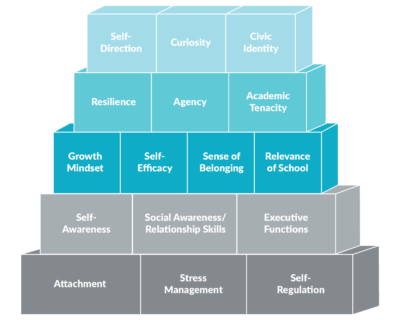
2016
Building Blocks for Learning white paper
Turnaround releases framework for the development of evidence-based skills and mindsets proven by research to predict academic achievement.2016
Big year for media
Turnaround for Children's work is recognized in print, broadcast and online including The Atlantic, Forbes and The Economist. In May, Paul Tough publishes Helping Children Succeed: What Works and Why, highlighting Turnaround for Children's work of creating safe, supportive school environments. In June, Turnaround's work with Washington, D.C. partner, Houston Elementary School, is highlighted in The Washington Post. In September, PBS airs NOVA's School of the Future. This two-hour documentary features Dr. Pamela Cantor and New York partner Fairmont Neighborhood School and explores the science of learning, including research and insights from neuroscientists, psychologists and educators working to reimagine the future of education.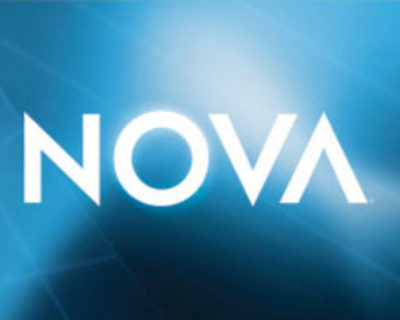
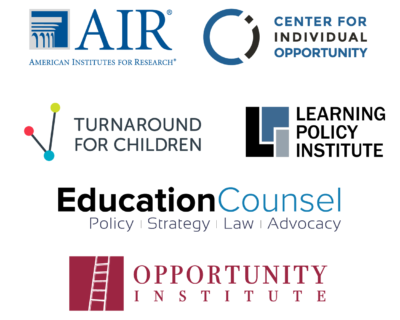
2016
The Science of Learning and Development (SoLD)
The Science of Learning and Development (SoLD) initiative is a collaborative effort focused on elevating and translating a diverse but increasingly convergent body of scientific literature to support the transformation of the systems that educate children from birth to adulthood. It is funded by several organizations, including the Chan Zuckerberg Initiative, the Ford Foundation and the Raikes Foundation, and includes 6 partner organizations: the American Institute for Research (AIR), the Center for Individual Opportunity, EducationCounsel, the Learning Policy Institute, The Opportunity Institute and Turnaround for Children. SoLD's goal is to synthesize, integrate and translate scientific research into educational practice in order to dramatically improve outcomes for students, regardless of their start in life.2017
Shift to scale knowledge and practice expertise
Shifting from its traditional embedded program, Turnaround offers a suite of services to broaden its reach and better address the needs of a diverse set of educators – from teachers to system leaders. Turnaround expands its relationship with District of Columbia Public Schools through leadership consultation and principal cluster trainings and establishes a partnership with KIPP DC, the charter school network, working closely with two schools, training all KIPP DC principals and partnering with its leadership..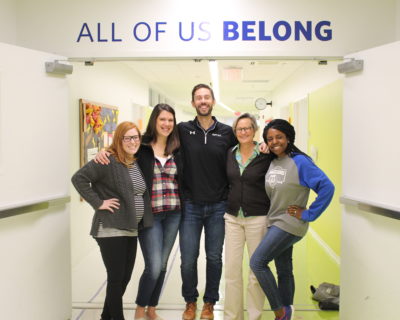
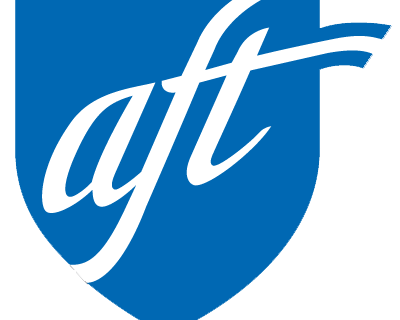
2017
American Federation of Teachers' TEACH Conference
Michael Lamb, Executive Director, Washington D.C. delivers a plenary talk to 1,400 educators on opening day of the AFT Together Educating America’s Children (TEACH) Conference, followed by a question and answer session focused on children’s well-being with AFT President Randi Weingarten and Jeff Duncan-Andrade, Associate Professor of Raza Studies and Education at San Francisco State University and Co-Founder of the Teaching Excellence Network.2018
SoLD peer-reviewed papers published in Applied Developmental Science
Two landmark papers, co-authored by Pamela Cantor, M.D. and Lily Steyer from Turnaround for Children, along with colleagues David Osher and Juliette Berg from the American Institutes for Research, and Todd Rose from the Harvard Graduate School of Education and Center for Individual Opportunity are simultaneously published in the peer-reviewed journal Applied Developmental Science. The first paper, Malleability, Plasticity, and Individuality: How Children Learn and Develop in Context, examines what nourishes or hinders healthy brain development. The second, Drivers of Human Development: How Relationships and Context Shape Learning and Development, focuses on how family, peer, caregiver and teacher relationships, as well as home, community and school environments impact the ways young people develop. Combined, these papers aim to answer the following questions: What science should we pay attention to when considering how to foster healthy developmental trajectories for all children? What do we know now that could help all students learn to the fullest?
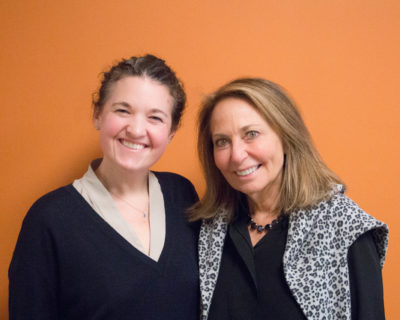
2018
A New CEO
In September 2017, Dr. Pamela Cantor announced that after 16 years, she planned to transition as Founder and CEO to a new role, Founder and Senior Science Advisor. A national search commenced and in March, Turnaround for Children’s Board of Directors voted unanimously to name Brigid Ahern President and CEO, effective June 1. In a strong pool of applicants, Brigid rose to the top because of her goal-orientation, operational focus, successful track record and unwavering dedication to Turnaround’s mission. Brigid joined Turnaround in 2014 as Chief External Affairs Officer, overseeing the Communications, Development, Executive Office, Policy and Systemic Impact teams. She has served on the organization’s leadership team, driving the strategy that positions Turnaround to meet growing demand for its work translating science into educational practice at scale.2019
Edutopia premieres video series developed in partnership with Turnaround for Children
Turnaround for Children collaborates with Edutopia to produce How Learning Happens, a series of more than 20 videos showcasing teaching practices, grounded in the science of learning and development, that educators can use in their classrooms right away. Pairing brain and social science research with exemplary strategies from schools, the videos show how to guide all children to become productive and engaged learners. The series features expertise in science and practice from Turnaround for Children Founder and Senior Science Advisor, Pamela Cantor, M.D., and Learning Policy Institute President and CEO, Linda Darling-Hammond, Ed.D.

2019
Turnaround delivers integrated learning experience to District of Columbia Public Schools (DCPS) school leaders at the DCPS Summer Leadership Institute
Turnaround for Children’s staff, including Founder and Senior Science Advisor, Pamela Cantor, M.D., Michael Lamb, Turnaround’s Executive Director for Washington D.C., and a group of expert facilitators and content designers, create and deliver eight hours of learning experiences for more than 600 DCPS school leaders, including principals, assistant principals, instructional coaches and teacher leaders — including every single school leader from preschool through 12th grade — at the 2019 DCPS Summer Leadership Institute.2019
Turnaround launches The 180 Podcast
Turnaround for Children launches its podcast The 180. Featuring leading voices in American education, health and child development, The 180 explores how to transform 21st century education using 21st century science. The science explaining how children actually learn and develop is incredibly optimistic about what is possible for each and every child. If applied, it could unleash talent and potential in classrooms everywhere. Featured podcast guests include: Jim Shelton of Blue Meridian Partners, Todd Rose of Populace, Linda Darling-Hammond of the Learning Policy Institute and more.

2019
Expansion to Tulsa, Oklahoma
Turnaround for Children partners with Tulsa Public Schools’ Tulsa Beyond program for the 2019-20 school year. By offering systems consulting and professional development training to teachers leading the change in four schools, Turnaround equips more than 72 educators to create healthy learning environments and catalyze academic success for approximately 1,088 students in Tulsa Public Schools.2020
Tulsa Partnership Expands
Turnaround for Children partners with Tulsa Public Schools’ Student and Family Supports Services to support implementation of whole-child practices with an ongoing professional learning series, with presentations on the 3Rs, components of Turnaround’s Whole-Child Design Blueprint and a virtual tour of the Turnaround for Children Toolbox.

2020
Turnaround produces resource hub for educators and caregivers in response to the coronavirus pandemic
The world faces a unique paradox: to slow the spread of the novel coronavirus and to be physically safe, we must stay apart from many people in our lives. But to ensure emotional safety, we need to maintain connections with the people we trust most -- our family, friends, teachers and peers. Turnaround develops a resource hub for parents, educators, school leaders and any adult who has a supportive relationship with a child to help navigate this challenging period. Turnaround also joins the COVID-19 Education Coalition and the Educating All Learners Alliance to share resources and elevate best practices to promote equity for all learners during the pandemic.2020
Turnaround develops The Three Rs framework
Responding to the dual pandemics of racial injustice and the coronavirus pandemic, Turnaround for Children distills its Vision for School and Student Success into a new framework called the Three Rs: Relationships, Routines and Resilience. The Three Rs offer practical strategies educators, parents and caregivers can use to inoculate themselves and the children the care for against the intolerable stress of this moment. Turnaround has shared The Three Rs in forums including the American Federation of Teachers (AFT), The National PTA, the International Society for Technology in Education (ISTE) and many more.

2020
Responding to Crisis Within a Tiered Supports System Action Pack
To help schools address the collective trauma and ongoing challenges of the COVID-19 pandemic, Turnaround for Children creates an Action Pack to guide staff, schools and school systems in Responding to Crisis Within a Tiered Supports System, along with a blog series highlighting the importance of having a crisis plan in place and how to implement one within a tiered system of supports. The Action Pack includes tools and resources that help guide the creation of a school crisis plan that allows for students who are experiencing disruptions in their health, mood, behavior, and/or skill development to receive immediate support.2020
A Trusted Space
Pamela Cantor M.D. joins education thought leaders as a consulting expert on the docu-training film A Trusted Space: Redirecting Grief to Growth. Released by national nonprofit All It Takes, the film aims to help educators mitigate the effects of grief, trauma and emotional stressors facing students as they head back to school amidst the uncertainty of COVID-19.

2020
Well-Being Index
Turnaround develops and releases the Well-Being Index, a measurement tool that enables educators to hear directly from young people on how they’re feeling and functioning in order to provide timely, individualized support without stigmatizing them. Meeting the needs of the moment, the tool is designed for use in virtual, hybrid or in-person settings, and has versions available for Elementary and Secondary settings.2021
Turnaround for Children’s Approach to Tiered Supports
Following the release of the Tiered Supports Crisis Action pack, a new series of blogs, interactive tools and resources are introduced sharing Turnaround’s approach to Tiered Systems of Support. This approach to integrated supports provides a framework for schools in developing an adaptive, responsive continuum of supports for all students that addresses their academic, physical, social, emotional and identity needs while removing barriers to learning and development.

2021
Turnaround for Children Toolbox
Turnaround for Children launches the Toolbox, an online hub for science-grounded ideas and resources that are all aligned with Turnaround’s Whole-Child Design Blueprint, engaging educators to embed an equitable whole-child purpose into our education system. Designed by educators, for educators, the Toolbox offers research articles, videos and interactive tools to help redesign current school systems, practices and mindsets so that all young people can thrive.2021
Whole-Child Development, Learning, and Thriving: A Dynamic Systems Approach
Cambridge University Press publishes the book, “Whole-Child Development, Learning, and Thriving: A Dynamic Systems Approach.” Authored by Turnaround’s Dr. Pamela Cantor, M.D. and Nora Gomperts, along with Richard Lerner, Karen Pittman, and Paul Chase, the book explains how children develop through a system of dynamic relationships and the collective set of contexts that they experience across their life spans.The authors name and challenge the fallacies that drove the design of the 20th century education system and propose a new purpose for a 21st century education system—creating environments in which all children can thrive.

2021
Design Principles
The Design Principles is a collaborative project led by the Forum for Youth Investment, Learning Policy Institute, and Turnaround for Children, in association with the Science of Learning and Development Alliance and 100+ leaders from across the fields of education and youth development. The project synthesizes what is known from the science of learning and development into key elements that need to be present and integrated in order to optimize learning and development: the Essential Guiding Principles for Equitable Whole-Child Design. The Design Principles project creates two Playbooks, one for K-12 and one for community settings, that provide detailed descriptions of and support for structures and practices that characterize whole-child design.2021
The Science of Learning and Development: Enhancing the Lives of All Young People
Edited by Pamela Cantor, M.D. and AIR Vice President and Institute Fellow, David Osher, Routledge publishes the book, “The Science of Learning and Development: Enhancing the Lives of All Young People.” Featuring contributions from a diverse range of scholars, the book unpacks major transformations in the study of learning and human development and provides evidence for how science can inform innovation in the design of systems, settings, policies, practice, and research to enhance the life path, opportunity and prosperity of every child.

2021
Turnaround delivers virtual learning experiences virtually during Tulsa Public Schools’ Ready! Set! Summer! Expanded Learning initiative
Turnaround for Children’s Partnership Director, Dawn Foreman, creates and delivers 8 hours of learning experiences for more than 200 educators, including summer site administrators, group leaders, teachers, teaching assistants, parent involvement facilitators, counselors, deans, social workers, community partners, and more. Educators are introduced to the key principles of the Science of Learning and Development (SoLD) and the Supportive Environments and Developmental Relationships components of Turnaround’s Whole-Child Design Blueprint.2021
Turnaround delivers professional learning at DCPS New Educator Orientation
Turnaround for Children Partnership Directors, Dawn Foreman and Tammi Thomas, create and deliver 3 hours of learning experiences for approximately 600 educators joining DCPS for the 2021-2022 school year. In support of the DCPS Becoming Initiative, educators receive training on Turnaround’s Whole-Child Design Blueprint, the key principles from the Science of Learning and Development (SoLD) and trauma-responsive practices.
